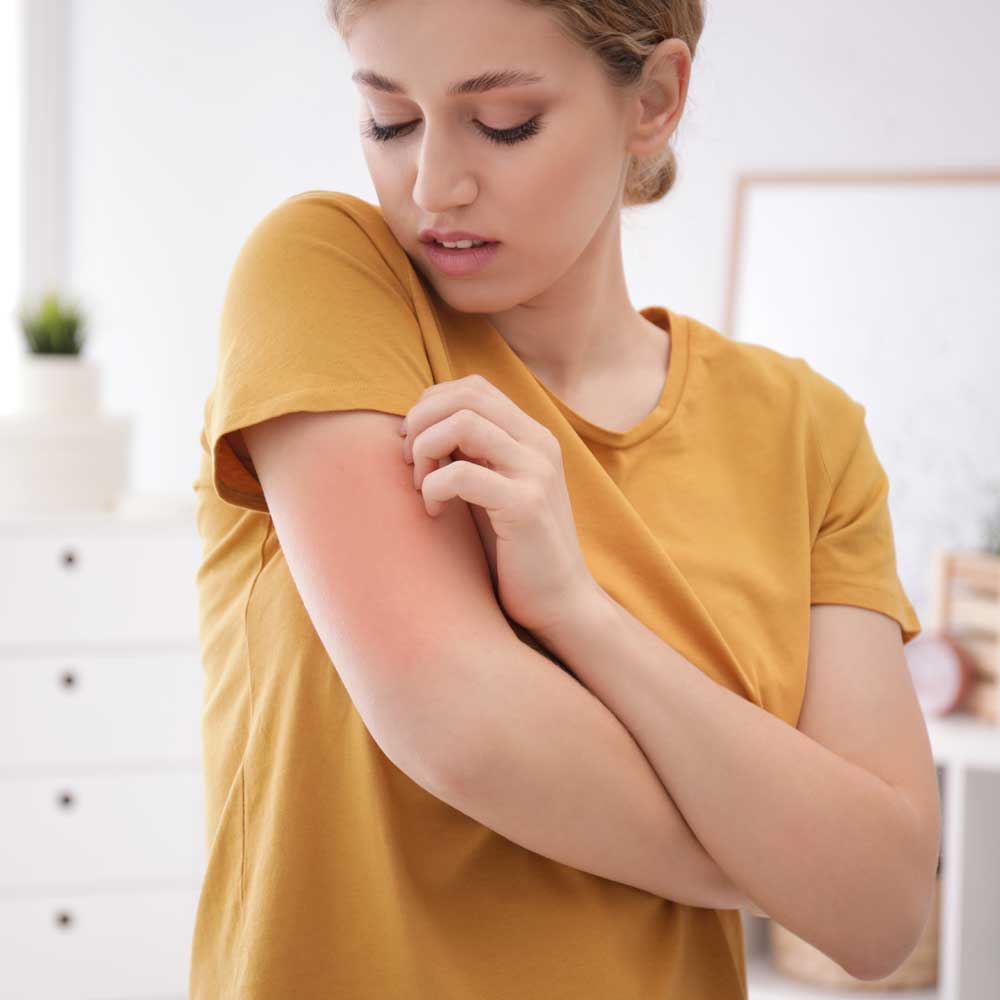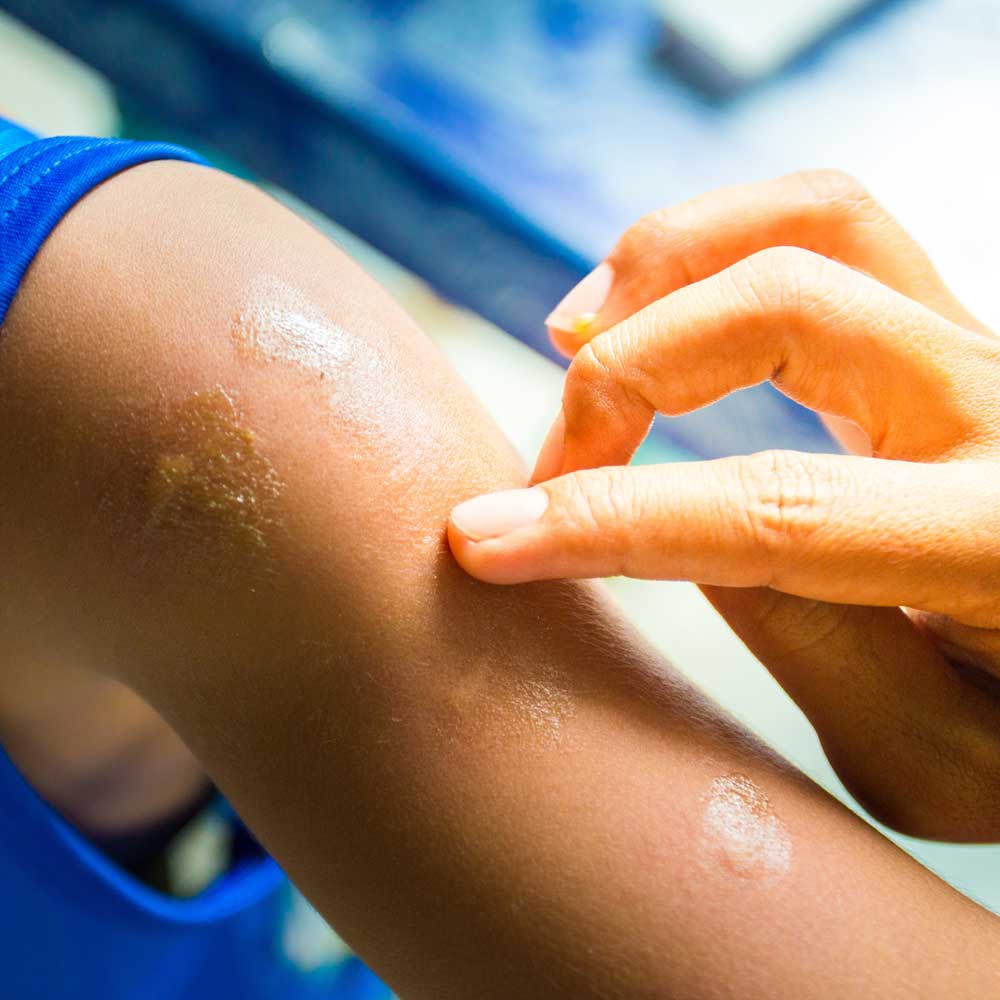
Fast Relief
Care for Insect Bites & Stings in Northeast Philadelphia
Insect bites and stings are common, but some can cause pain, allergic reactions, or even infections if not properly treated. At IPMC Health Clinic in Northeast Philadelphia, we offer same-day care for bites and stings—so you can feel better, faster.
Whether it’s a mosquito bite that won’t stop itching or a bee sting that’s swelling up, our experienced medical team is here to evaluate your symptoms and provide quick, effective treatment.
Know Symptoms
When Is a Bite or Sting a Concern?
Most bites and stings are minor, but some can lead to more serious symptoms. Seek care if you experience:
- Swelling or redness that spreads
- Intense itching or burning
- Pain that doesn’t go away
- Signs of infection (warmth, pus, or fever)
- Trouble breathing or swallowing
- Dizziness or nausea
- Hives or widespread rash
Severe reactions may require immediate attention, especially if there’s a known allergy to bee stings or insect venom.

Care Process
How We Treat Bites & Stings
When you visit IPMC Health Clinic for a bite or sting, we’ll:
- Examine the affected area and assess your symptoms
- Clean the wound and apply topical or oral medications as needed
- Prescribe antihistamines or corticosteroids for allergic reactions
- Administer antibiotics if there’s an infection
- Offer epinephrine for severe allergic responses (anaphylaxis)
- Provide guidance on how to care for the area at home and prevent future issues
We aim to reduce your discomfort quickly and prevent complications.
Trusted Specialists
Why Choose IPMC Health Clinic?
From everyday bites to allergic stings, IPMC Health Clinic offers expert care in a comfortable, welcoming setting—right when you need it.
Same-Day Appointments – No need to wait it out at home
Working Hours – Monday–Thursday, 8 AM – 2 PM
Convenient Location – Right here in Northeast Philadelphia
Bilingual Team – Focused on your comfort and care
Trusted by Local Families – for Responsive, Reliable Care
Simply fill out the form, and our team will contact you to confirm your appointment.
Frequently Asked Questions
Care for Bites and Stings
When should I seek medical care for a bite or sting?
Seek care if there is significant swelling, signs of infection (like pus, redness, or warmth), difficulty breathing, fever, or if the bite/sting is from an unknown or venomous insect or animal.
How do I know if a bite or sting is infected?
Signs of infection include increasing redness, swelling, warmth, pus or drainage, and pain that worsens over time. If you notice any of these symptoms, it’s best to be evaluated.
What’s the difference between an allergic reaction and a normal reaction?
Mild reactions include redness, itching, or swelling at the site. An allergic reaction can cause widespread hives, facial swelling, difficulty breathing, or dizziness—these require immediate medical attention.
Can you remove a tick or bee stinger?
Yes, our team can safely remove ticks, bee stingers, or other foreign objects and provide follow-up care to prevent infection or complications.
What should I do right after a bite or sting?
Clean the area with soap and water, apply a cold compress to reduce swelling, and monitor for symptoms. Avoid scratching. If symptoms worsen, visit us for an evaluation.
Are bites from animals treated differently than insect bites?
Yes. Animal bites, especially from dogs, cats, or wild animals, may require antibiotics, a tetanus shot, or even rabies post-exposure treatment depending on the case.
Do I need a tetanus shot after a bite or sting?
Possibly. If your tetanus shot is not up to date or if the wound is deep or dirty, we may recommend a booster.
Do you treat children with bites or stings?
Yes, we offer treatment for patients of all ages, including children who have been bitten or stung.
Can you treat spider or tick bites?
Yes. We treat bites from various insects, including ticks and spiders. If you’re unsure what bit you, it’s still best to get checked out.
